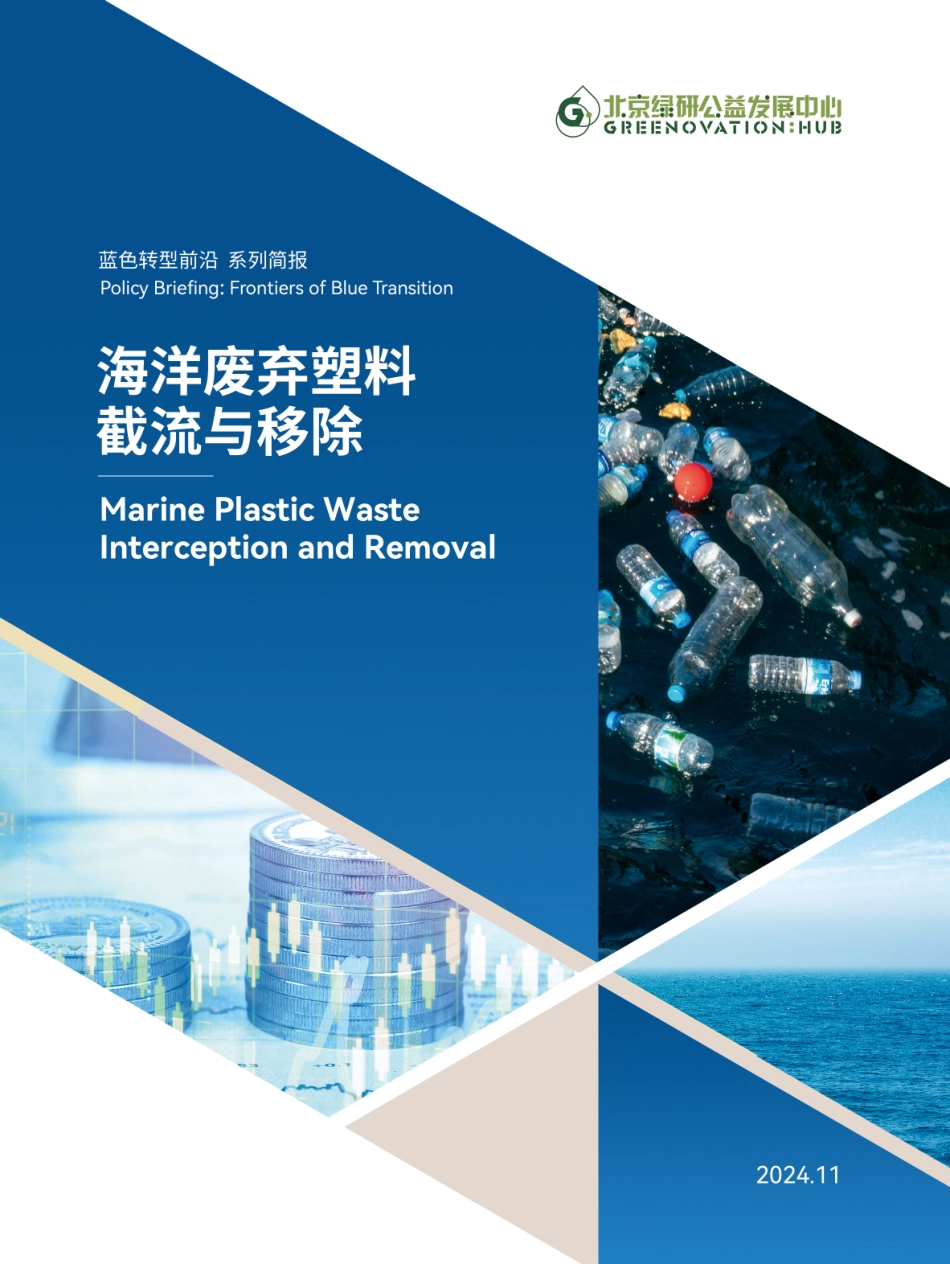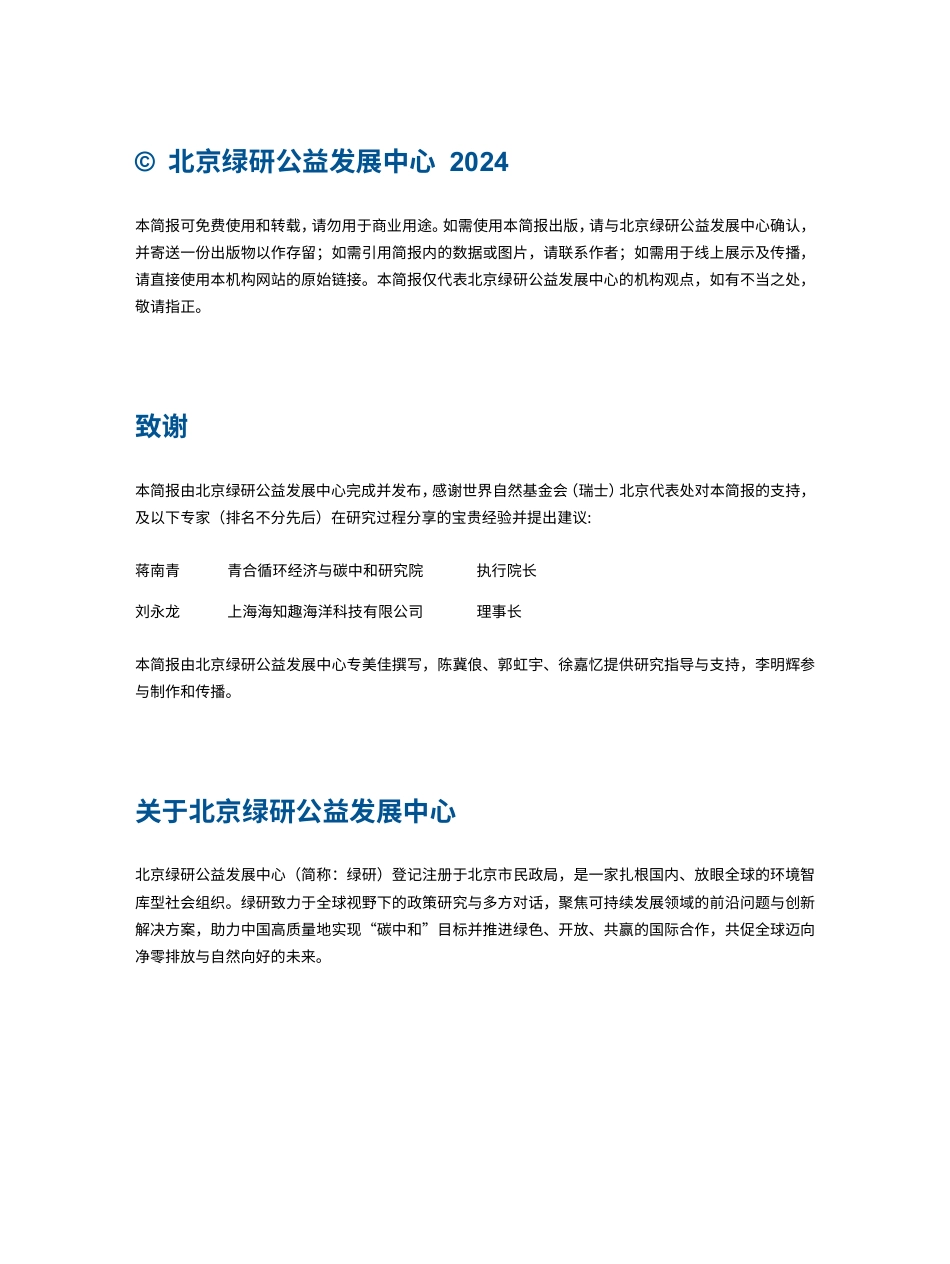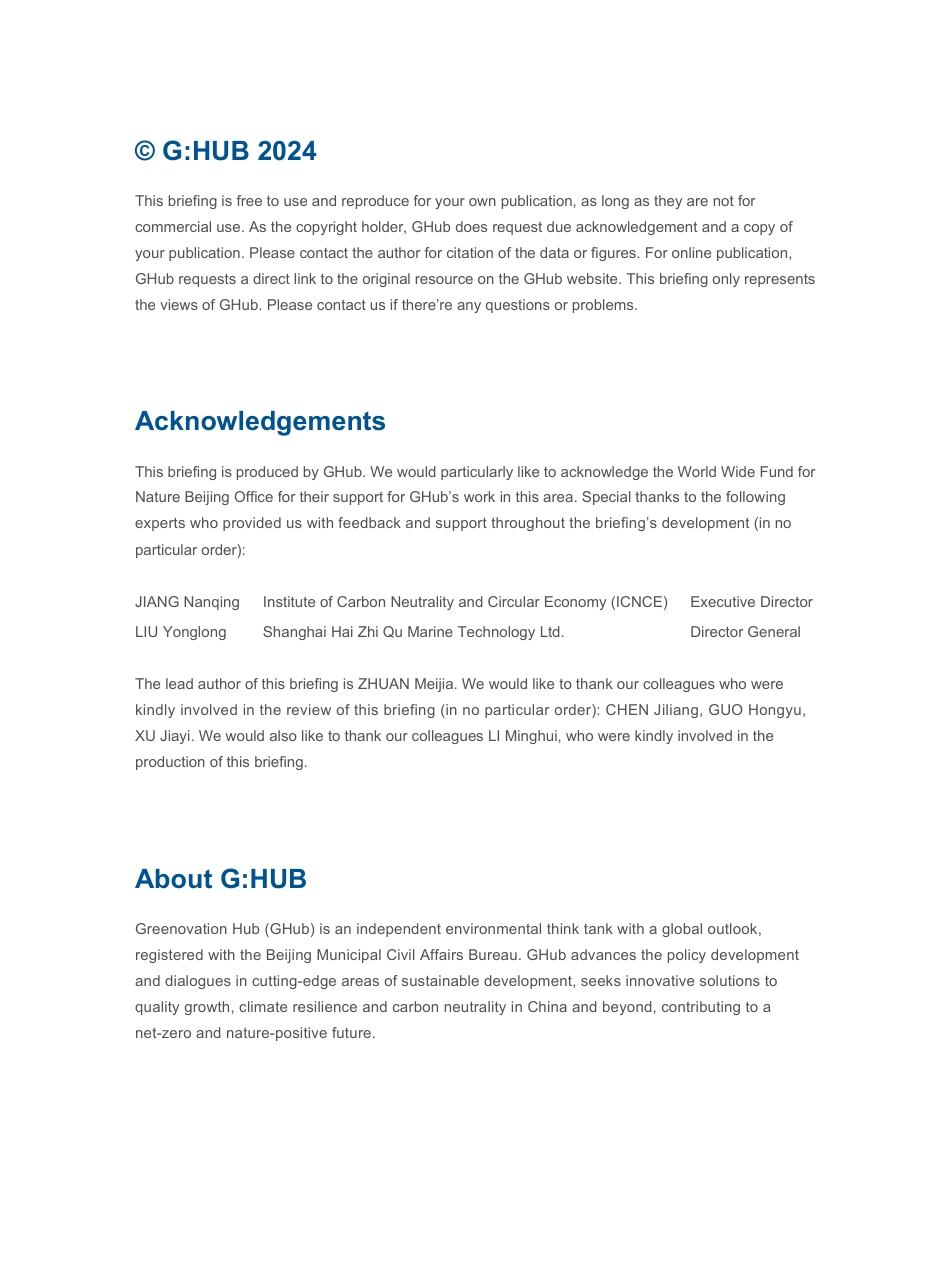©北京绿研公益发展中心2024本简报可免费使用和转载,请勿用于商业用途。如需使用本简报出版,请与北京绿研公益发展中心确认,并寄送一份出版物以作存留;如需引用简报内的数据或图片,请联系作者;如需用于线上展示及传播,请直接使用本机构网站的原始链接。本简报仅代表北京绿研公益发展中心的机构观点,如有不当之处,敬请指正。致谢本简报由北京绿研公益发展中心完成并发布,感谢世界自然基金会(瑞士)北京代表处对本简报的支持,及以下专家(排名不分先后)在研究过程分享的宝贵经验并提出建议:蒋南青青合循环经济与碳中和研究院执行院长刘永龙上海海知趣海洋科技有限公司理事长本简报由北京绿研公益发展中心专美佳撰写,陈冀俍、郭虹宇、徐嘉忆提供研究指导与支持,李明辉参与制作和传播。关于北京绿研公益发展中心北京绿研公益发展中心(简称:绿研)登记注册于北京市民政局,是一家扎根国内、放眼全球的环境智库型社会组织。绿研致力于全球视野下的政策研究与多方对话,聚焦可持续发展领域的前沿问题与创新解决方案,助力中国高质量地实现“碳中和”目标并推进绿色、开放、共赢的国际合作,共促全球迈向净零排放与自然向好的未来。©G:HUB2024Thisbriefingisfreetouseandreproduceforyourownpublication,aslongastheyarenotforcommercialuse.Asthecopyrightholder,GHubdoesrequestdueacknowledgementandacopyofyourpublication.Pleasecontacttheauthorforcitationofthedataorfigures.Foronlinepublication,GHubrequestsadirectlinktotheoriginalresourceontheGHubwebsite.ThisbriefingonlyrepresentstheviewsofGHub.Pleasecontactusifthere’reanyquestionsorproblems.AcknowledgementsThisbriefingisproducedbyGHub.WewouldparticularlyliketoacknowledgetheWorldWideFundforNatureBeijingOfficefortheirsupportforGHub’sworkinthisarea.Specialthankstothefollowingexpertswhoprovideduswithfeedbackandsupportthroughoutthebriefing’sdevelopment(innoparticularorder):JIANGNanqingInstituteofCarbonNeutralityandCircularEconomy(ICNCE)ExecutiveDirectorLIUYonglongShanghaiHaiZhiQuMarineTechnologyLtd.DirectorGeneralTheleadauthorofthisbriefingisZHUANMeijia.Wewouldliketothankourcolleagueswhowerekindlyinvolvedinthereviewofthisbriefing(innoparticularorder):CHENJiliang,GUOHongyu,XUJiayi.WewouldalsoliketothankourcolleaguesLIMinghui,whowerekindlyinvolvedintheproductionofthisbriefing.AboutG:HUBGreenovationHub(GHub)isanindependentenvironmentalthinktankwithaglobaloutlook,registeredwiththeBeijingMunicipalCivilAffairsBureau.GHubadvancesthepolicydevelopmentanddialoguesincutting-edgeareasofsustainabledevelopment,seeksinnovativesolutionstoqualitygrowth,climateresilienceandcarbonneutralityinChinaandbeyond,contributingtoanet-zeroandnature-positivefuture.iExecutiveSummaryMarineplasticpollutionisasignificantpartoftheglobalplasticcrisis.Sincethe1950s,therehasbeenanexponentialincreaseinthescaleofglobalplasticproductionanduse.Mostplasticsrapidlybecomewastebecauseoftheirshortlifespan,andmostplasticwasteleaksintotheenvironmentwithoutpropertreatment.Asizableamountofitendsupintheoceans,accumulatinginvariousmarineecosystemsinunignorablequantities.Ifnointerventionismade,theinflowandstockofmarineplasticswillkeepgrowing.Marineplasticpollutionhasreceivedattentionfromglobalenvironmentalgovernanceprocesses.TheUnitedNations2030AgendaforSustainableDevelopmentandtheKunming-MontrealGlobalBiodiversityFrameworkoftheConventiononBiologicalDiversityhaveidentifiedthereductionofmarineplasticwasteasanessentialelementincombatingmarinepollution,achievingsustainabledevelopment,andprotectingglobalbiodiversity.Theintergovernmentalnegotiationstoreachalegallybindin...



 VIP
VIP VIP
VIP VIP
VIP VIP
VIP VIP
VIP VIP
VIP VIP
VIP VIP
VIP VIP
VIP VIP
VIP